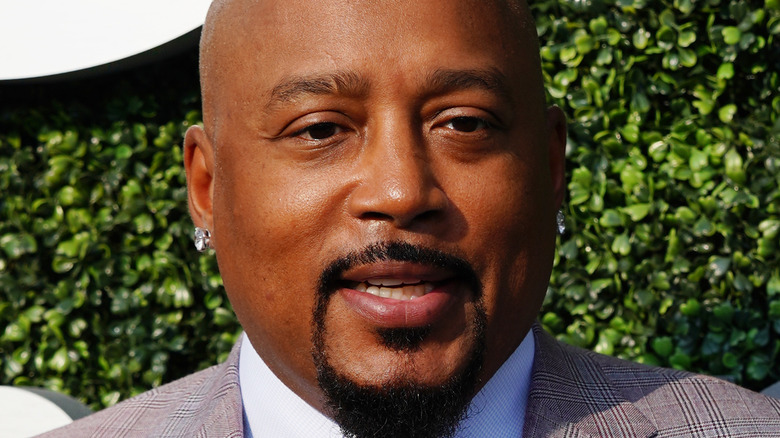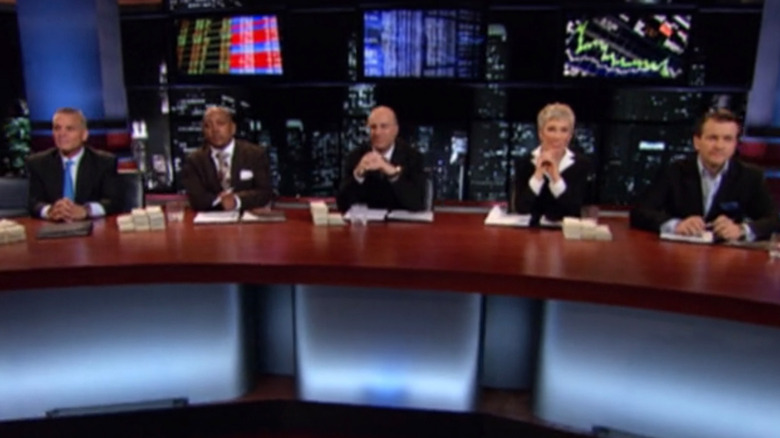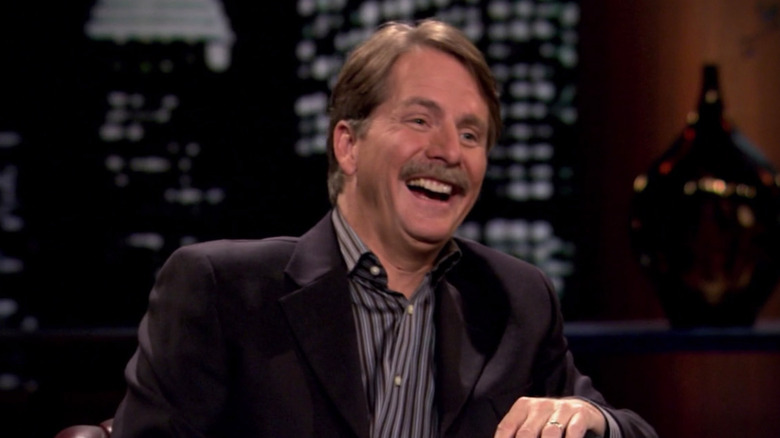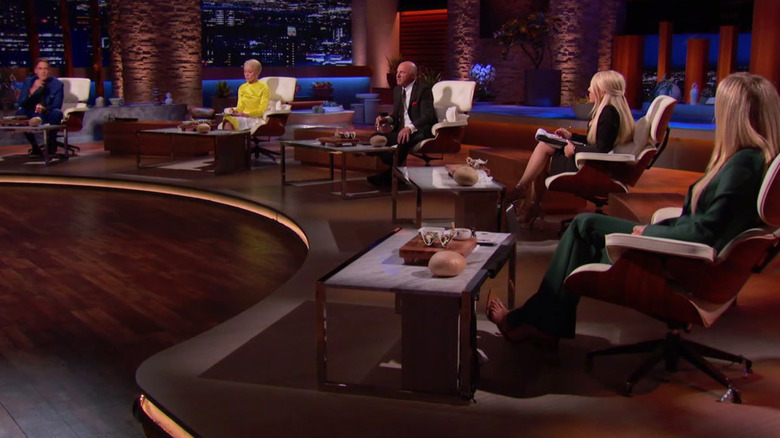Shark Tank Was Almost Axed After Just One Season
Today, "Shark Tank" is one of the flagship shows in ABC's fleet. According to TV Series Finale, the show's current season is averaging a healthy 3.5 million viewers per episode–not bad for a show that began in 2009. On top of that, the show has received 22 total Emmy nominations, winning Best Structured Reality Program Emmy every year from 2014 to 2017 (via The Emmys). Hundreds of entrepreneurs have pitched their ideas on "Shark Tank," and altogether the sharks have invested an estimated $207 million in their companies (per Slide Bean). By now, dozens of everyday products got their start on "Shark Tank," from Bombas Socks to PhoneSoap.
Given all of that success, it might be a surprise to learn that "Shark Tank" started out on shaky ground. Just like the businesses that are pitched to the sharks, "Shark Tank" itself needed time to figure out its special formula. Here's why "Shark Tank" was almost canceled after one season, why ABC decided to save it, and how it turned things around.
The original version of Shark Tank was much different than it is today
Like many a popular reality show in the US, "Shark Tank" is based on an international reality series–or in this case, three of them. The first iteration of "Shark Tank" aired in Japan beginning in 2001, and its title loosely translates to "Tigers of Money." That led to two more versions that aired in the UK (2005) and Canada (2006), which were both called "Dragons' Den"–"Shark Tank" mainstays Kevin O'Leary and Robert Herjavec are Canadian and were sharks on the Canadian version.
Then, uber reality producer Mark Burnett teamed up with Sony to create the American version, which became "Shark Tank." According to original shark Daymond John, Burnett and company pitched the show to several networks including ABC, who all passed. ABC finally changed its mind in 2009, while the Great Recession was in full swing.
Burnett wanted to keep "Shark Tank" true to its roots and actually educate viewers on how to run businesses. At first, Burnett was reluctant to hire celebrities who didn't have entrepreneurial backgrounds, and instead hired bona fide business moguls. Problem was, their lack of name recognition hurt. John describes the first season's sharks as a bunch of "nobodies," himself included.
On top of that, the show's producers came from reality TV backgrounds, not business backgrounds. This meant that while they may have been adept at choosing contestants who would be dynamic on camera, they might not have been able to spot a viable business opportunity. As a result, in the show's first season, only about 30-40% of the deals made on the show actually closed.
All of this had ABC ready to consign "Shark Tank" to a watery grave, but a shakeup in the network's executive suite changed everything.
Several changes, and a bit of luck, kept the show on the air
In 2010, Paul Lee was appointed president of ABC Television Group, which gave him authority over both the ABC Network and ABC Studios (per FX Networks). A former reporter from Belfast, Lee was a big believer in the "Dragons' Den"/"Shark Tank" format and wanted to give the show another chance–so long as it made changes to the structure.
First, the show relaxed its restrictions on hiring celebrity guests. In Season 2, "Shark Tank" invited billionaire Dallas Mavericks owner Mark Cuban and comedian Jeff Foxworthy to be guest sharks. Their star power brought eyeballs. Even better, Cuban's suggestion to have the sharks live-Tweet episodes raised the show's social media profile. Now, even children were interested in the show. Cuban, of course, would go on to become one of the main sharks for the rest of the series run.
"Shark Tank's" producers made even more tweaks. Season 1 of "Shark Tank" had the sharks seated behind tables on a dais elevated above the contestants, and surrounded by piles of money. From Season 2 onward, the sharks sat on the same level as the contestants with no unnecessary accouterments. This gave the interactions between the sharks and the contestants more immediacy. Season 2 also did away with post-pitch interviews with the contestants. Finally, producers improved at their business evaluation skills, leading to more enticing pitches for the sharks–and more deals that actually went through.
Despite all of these changes, "Shark Tank" still had one last obstacle to overcome: a Friday night timeslot.
Shark Tank saved Friday nights on ABC
When "Shark Tank" premiered in 2009, most TV executives, including those at ABC, considered Friday night to be a dead zone where TV ratings were concerned. Often, ABC and others would relegate under-performing shows to Friday night timeslots, where they would live out their last days until cancellation. "Shark Tank" appeared to be headed for that fate. After ABC experimented with Tuesday and Sunday night time slots for "Shark Tank," the network finally moved "Shark Tank" to a dreaded Friday night slot at 8 p.m. for Season 2.
Most shows would never recover from such a move, but not "Shark Tank." With all of the necessary changes in place, plus support from new ABC President Paul Lee, the show not only found its audience, it brought new viewers to a formerly barren patch of the TV schedule. "'Shark Tank' saved Friday night and proved there is a big audience available when the right show is on," ABC vice president of alternative series, specials, and late night Rob Mills said in 2014 (via The Wrap).
As the sharks know well, plenty of businesses experience growing pains before they thrive. That's especially true for "Shark Tank" itself.



